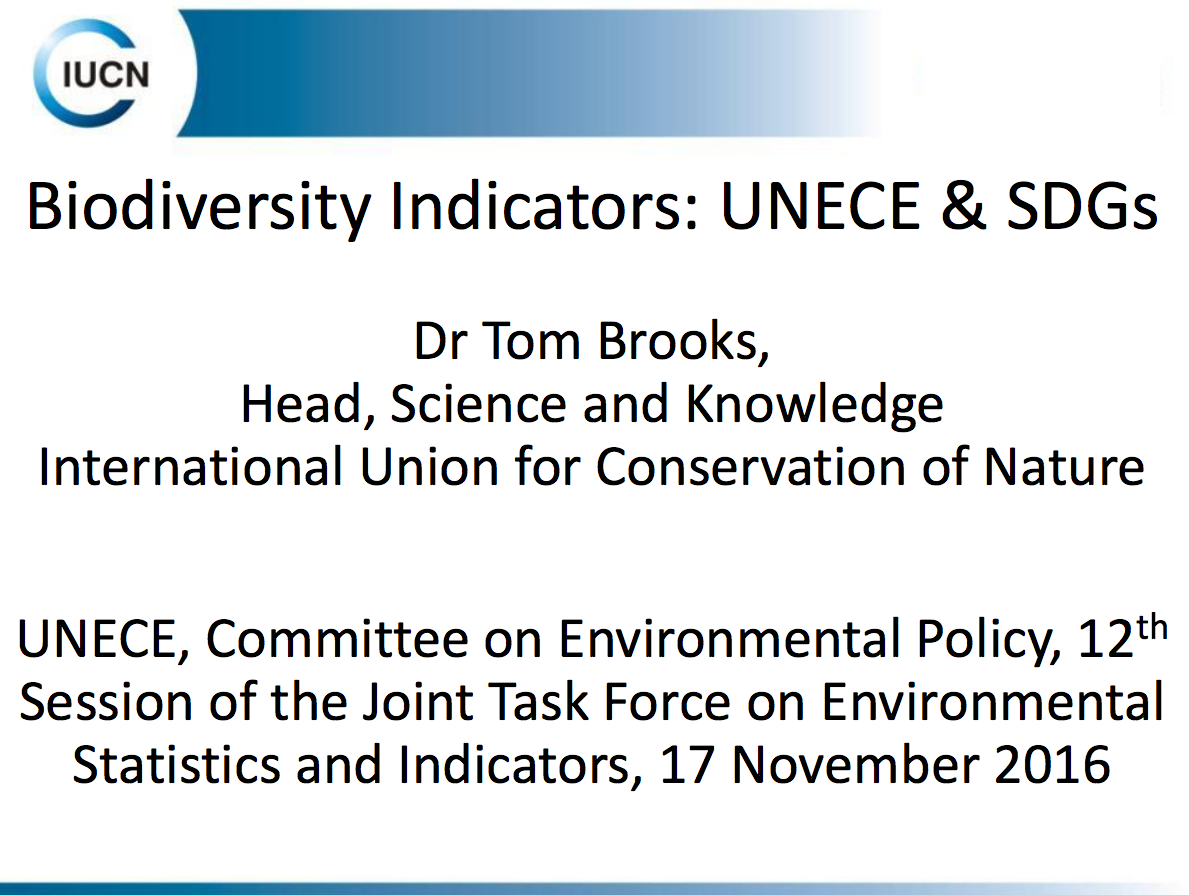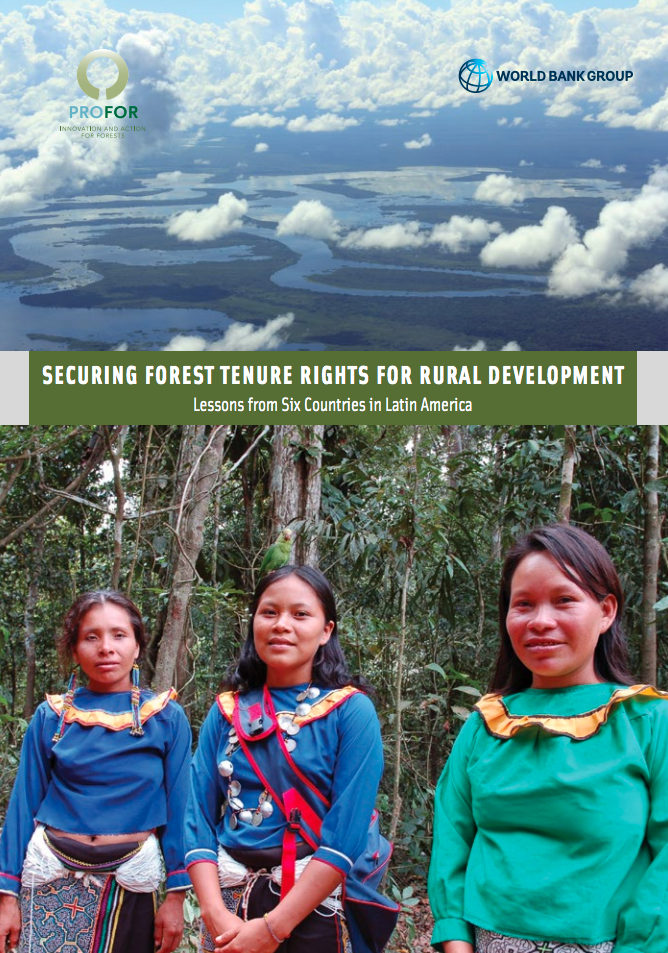Biodiversity Indicators: UNECE & SDGs
Dr Tom Brooks, Head, Science and Knowledge International Union for Conservation of Nature UNECE, Committee on Environmental Policy, presentation on Biodiversity Indicators: UNECE and the SDGS at the 12th Session of the Joint Task Force on Environmental Statistics and Indicators, 17 November 2016.


